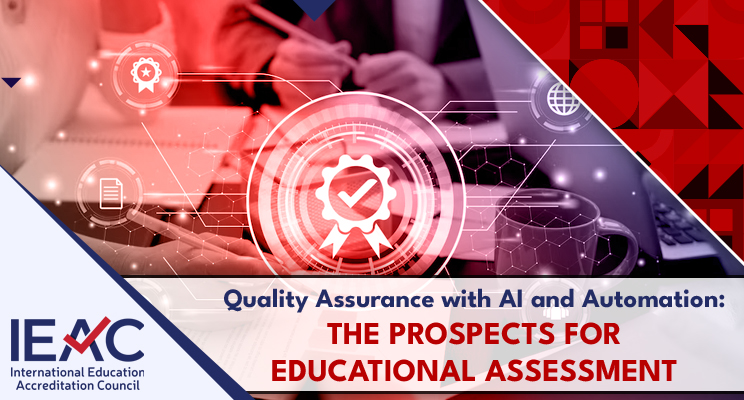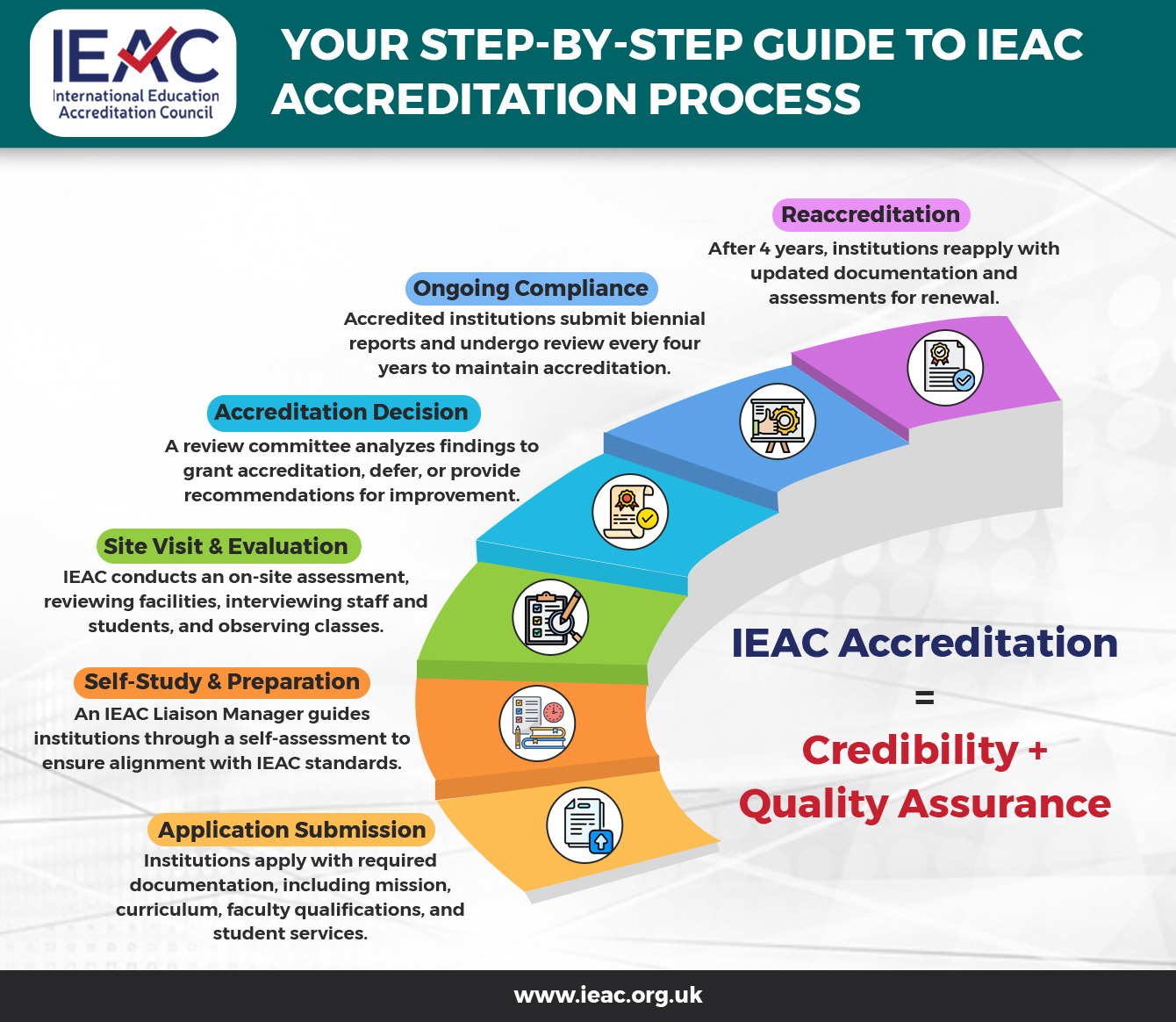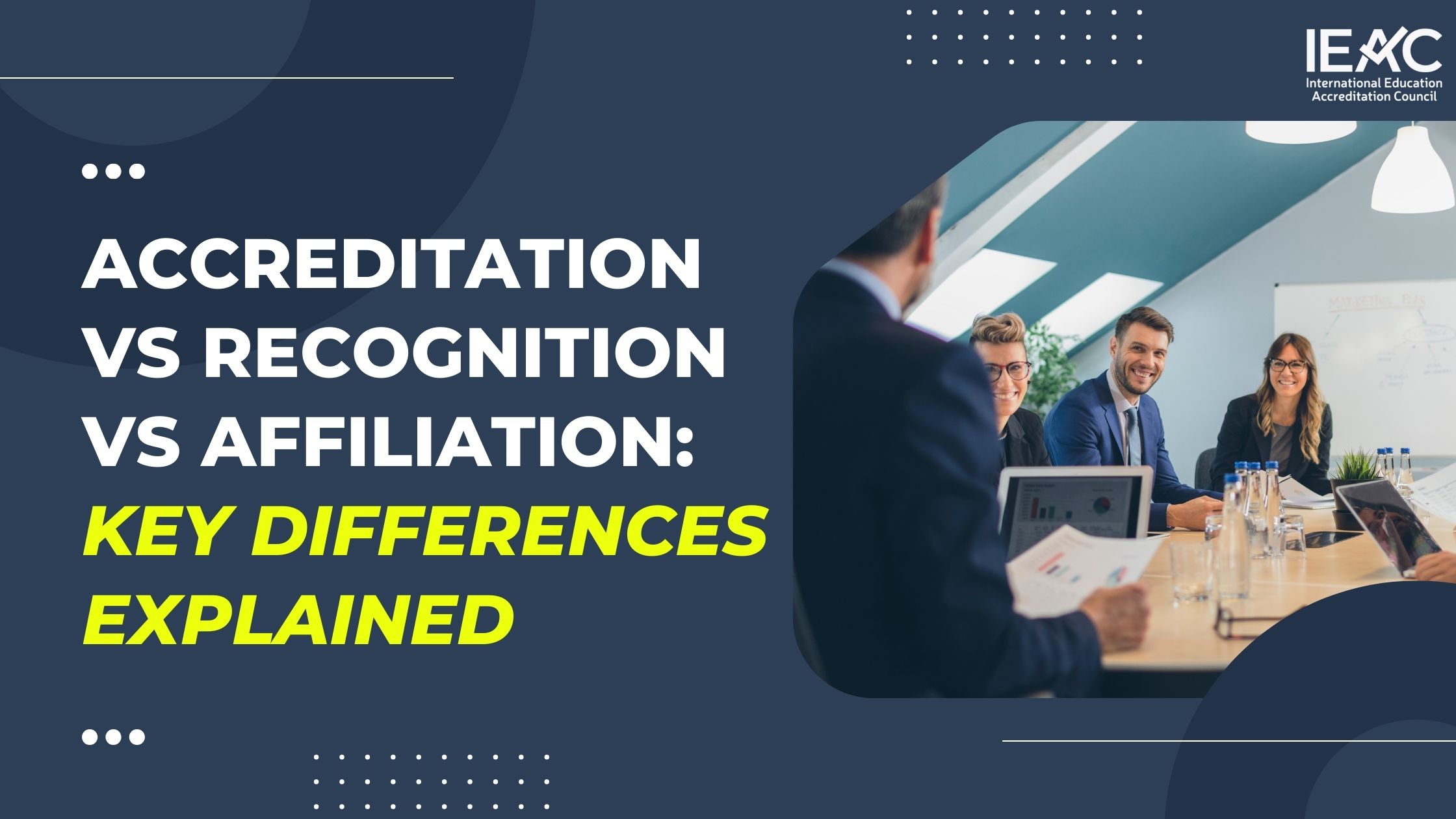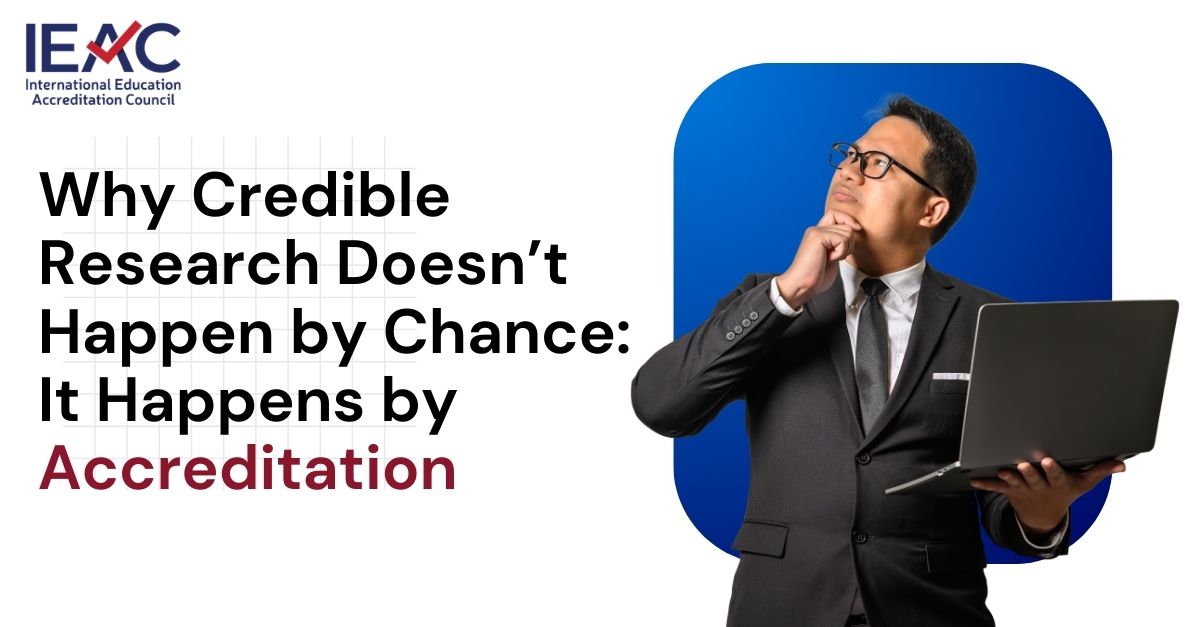- Home
- About IEAC
- Accreditation
- University Accreditation
- College Accreditation
- Online Institution Accreditation
- School Accreditation
- University Recruitment Agency Accreditation
- Programmatic Accreditation
- Teacher/ Lecturer Accreditation
- Religious Institutes Accreditation
- Affiliate Accreditation
- Research Accreditation Candidacy Accreditation
- IEAC Membership
- Institutions Accredited
- Accreditation Process
- Contact Us Webinar Apply Now
Blog
Quality Assurance with AI and Automation: The Prospects for Educational Assessment
Lorem ipsum dolor sit amet, consectetur adipiscing elit, sed do eiusmod tempor incididunt ut labore et dolore magna aliqua. Quis ipsum suspendisse ultrices gravida. Risus commodo viverra maecenas accumsan lacus vel facilisis.

Quality Assurance with AI and Automation: The Prospects for Educational Assessment
In an era where technology is reshaping industries, education is no exception. With the growing demand for high-quality learning experiences, ensuring educational institutions maintain rigorous standards is more crucial than ever. Quality assurance (QA) in education plays a pivotal role in safeguarding these standards, and with the rise of artificial intelligence (AI) and automation, the future of educational evaluation is undergoing a significant transformation.
The International Education Accreditation Council (IEAC) is at the forefront of this evolution, leveraging AI-driven tools to enhance the accreditation and evaluation processes, making them more efficient, transparent, and data-driven. This blog explores how AI and automation are revolutionizing quality assurance in education and how organizations like IEAC are integrating these advancements to create a future-proof accreditation framework.
The Role of Quality Assurance in Education
Quality assurance in education ensures that institutions meet predefined academic and operational standards. It involves continuous monitoring, assessment, and improvement of curricula, faculty performance, student outcomes, and institutional effectiveness. Accreditation bodies like IEAC set these benchmarks to uphold global education standards and enhance the credibility of institutions worldwide.
Traditional quality assurance methods often rely on extensive manual evaluations, documentation, and site visits. While effective, these processes can be time-consuming, prone to human error, and challenging to scale. The integration of AI and automation introduces a paradigm shift in how educational quality is assessed and maintained.
How AI is Transforming Educational Quality Assurance?
1. Automated Data Collection and Analysis
One of the most significant benefits of AI in QA is its ability to process vast amounts of data quickly and accurately. Institutions generate extensive records, including student performance metrics, faculty evaluations, research outputs, and administrative reports. AI-powered systems can aggregate, analyze, and interpret these datasets in real time, offering valuable insights into institutional effectiveness and compliance with accreditation standards.
For instance, AI-driven analytics can identify patterns in student performance to predict dropout rates, highlight areas of improvement in teaching methodologies, and suggest curriculum enhancements. Such data-driven decision-making enhances the quality of education and ensures institutions remain aligned with evolving academic benchmarks.

2. Intelligent Accreditation Processes
Accreditation is a rigorous process that involves evaluating institutions against established standards. AI can streamline accreditation by automating document verification, compliance checks, and report generation. Natural Language Processing (NLP) algorithms can review accreditation applications, identify inconsistencies, and provide feedback, reducing the administrative burden on evaluators and speeding up decision-making.
IEAC, for example, can use AI-powered tools to assess institutional reports and flag potential areas of concern. This allows accreditation committees to focus on in-depth evaluations rather than repetitive paperwork, leading to a more efficient and objective accreditation process.
3. Enhanced Monitoring and Continuous Improvement
AI can facilitate continuous monitoring of institutions rather than relying solely on periodic evaluations. Machine learning models can track key performance indicators (KPIs) in real time, alerting accreditation bodies to deviations from standards. This proactive approach ensures that institutions maintain quality standards consistently, rather than just meeting them during scheduled evaluations.
Moreover, AI-driven feedback mechanisms can offer personalized recommendations for faculty development, curriculum enhancements, and student engagement strategies, fostering a culture of continuous improvement within educational institutions.
4. Blockchain for Transparent and Secure Accreditation
Blockchain technology, combined with AI, can enhance the security and transparency of accreditation records. Institutions often face challenges related to credential verification and fraud prevention. By utilizing blockchain, accreditation bodies like IEAC can create tamper-proof records of institutional credentials, ensuring authenticity and ease of verification for employers, students, and other stakeholders.
For example, AI can analyze accreditation applications and validate the legitimacy of institutional claims, while blockchain ensures that once accreditation is granted, the records remain immutable and accessible globally.
5. AI-Powered Peer Reviews and Institutional Benchmarking
AI can facilitate peer reviews by comparing institutions with similar profiles worldwide. By analyzing data from multiple accredited institutions, AI can provide benchmarking insights, helping educational bodies identify best practices and areas for improvement.
Institutions can leverage AI-driven dashboards to compare their performance with global standards, fostering a competitive yet collaborative approach to quality enhancement. This ensures that education providers continuously strive for excellence, benefiting students and society at large.
Challenges and Ethical Considerations
While AI and automation offer immense potential in educational evaluation, they also come with challenges and ethical considerations:
- Bias in AI Algorithms: If AI models are trained on biased data, they may reinforce existing inequalities in education. Ensuring fairness and inclusivity in AI-powered QA systems is essential.
- Data Privacy Concerns: The extensive use of AI requires access to vast educational datasets. Institutions and accreditation bodies must ensure compliance with data protection regulations to safeguard student and faculty privacy.
- Human Oversight: AI should complement rather than replace human judgment in quality assurance. While automation enhances efficiency, the expertise and critical thinking of human evaluators remain irreplaceable.
IEAC's Vision for AI-Driven Quality Assurance
As a leader in international education accreditation, IEAC is committed to integrating AI and automation into its evaluation framework. By leveraging AI-powered tools, IEAC aims to:
- Enhance the efficiency of accreditation processes
- Provide real-time insights into institutional performance
- Foster a culture of continuous improvement in education
- Ensure transparency, security, and credibility in accreditation records
Through strategic adoption of AI and emerging technologies, IEAC is shaping the future of educational evaluation, ensuring that institutions worldwide uphold the highest standards of quality and excellence.
To End With
The integration of AI and automation in quality assurance marks a transformative shift in educational evaluation. By streamlining data collection, enhancing accreditation processes, and enabling real-time monitoring, AI-driven solutions are revolutionizing the way institutions maintain academic excellence. As an industry leader, IEAC is pioneering these advancements to create a robust, data-driven, and future-proof accreditation system.
As technology continues to evolve, embracing AI in quality assurance will be key to fostering an education ecosystem that is not only efficient and transparent but also adaptable to the needs of the 21st-century learner. Institutions that proactively integrate AI-powered quality assurance mechanisms will be better positioned to deliver world-class education and stay ahead in the competitive global landscape.






